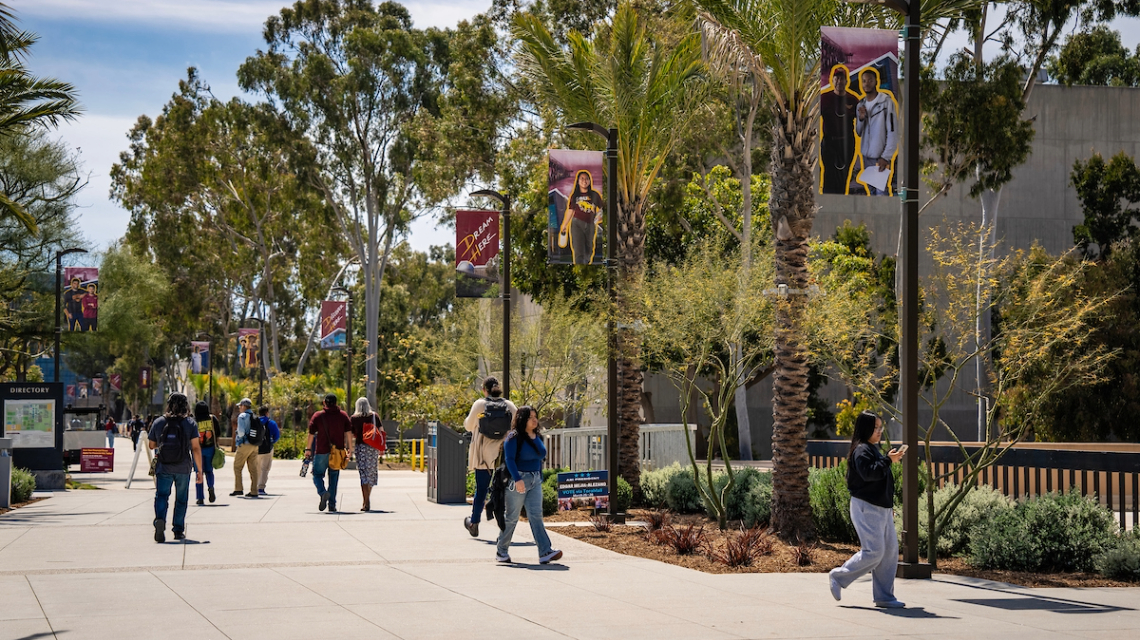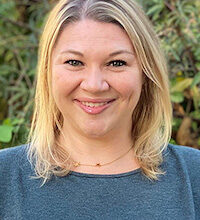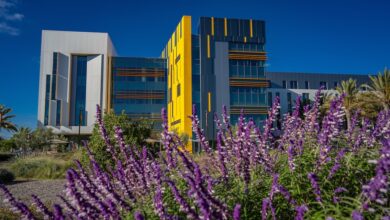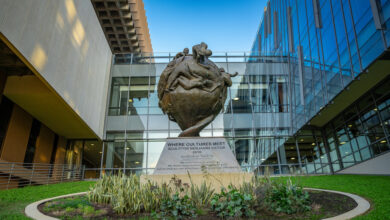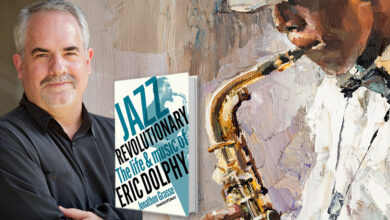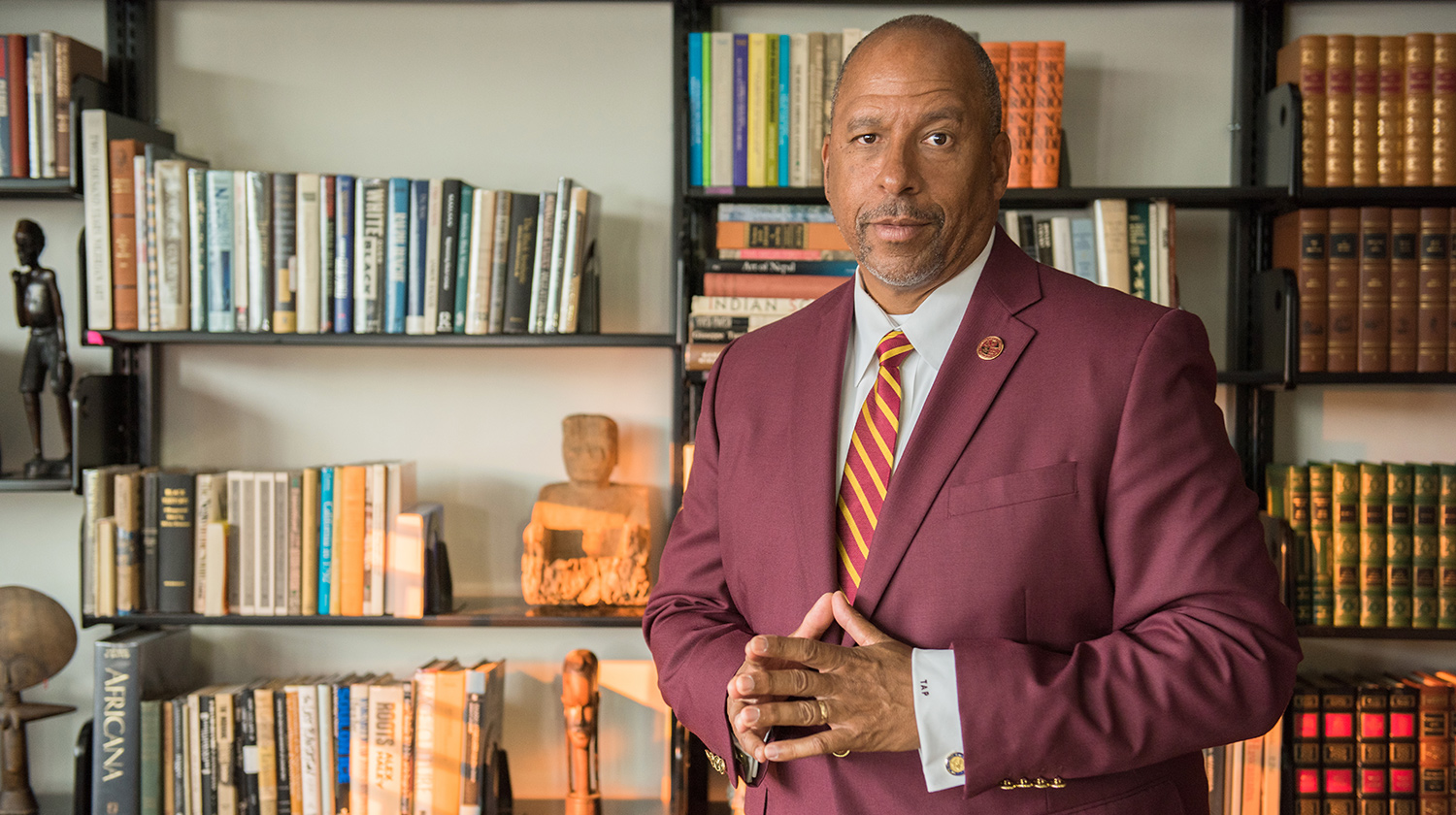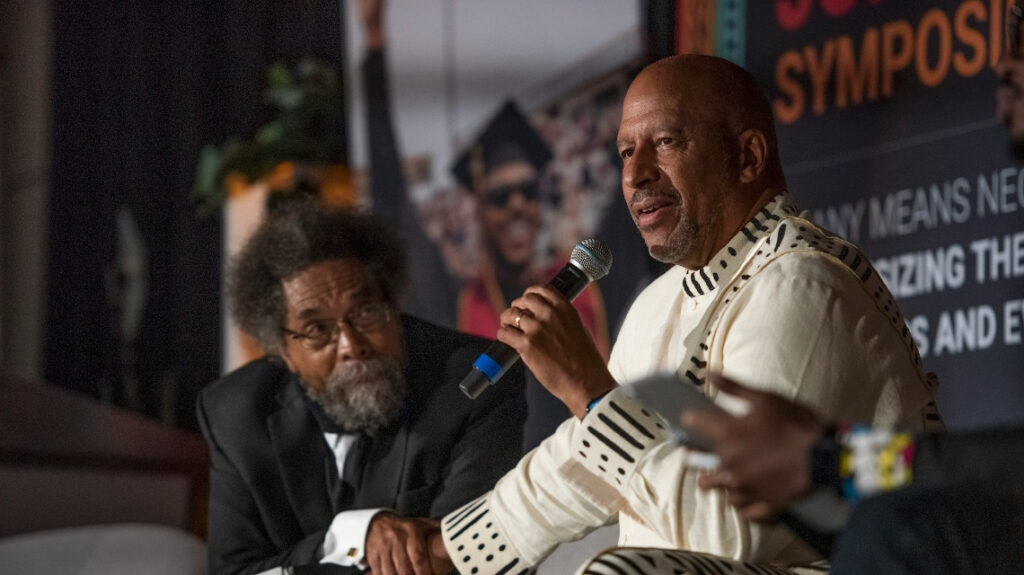
Source: Op-Ed by CSUDH President Thomas A. Parham for Inside Higher Ed
In his poem “Dreams,” the great American poet Langston Hughes reminds us that we should “Hold fast to dreams/For if dreams die/Life is a broken-winged bird/That cannot fly.”
Beyond providing academic and co-curricular spaces for students to cultivate their intellectual potential, as a psychologist and university president, I also believe our role in higher education is to prevent wings from breaking and mend those that do.
Earlier this summer, the California State University system and the CSU Dominguez Hills campus that I lead hosted their first Juneteenth biennial symposium and celebration of Black excellence. The symposium drew some 650 in-person attendees and more than 1,200 participants via live-streaming, who took advantage of an opportunity to engage in some deep thinking and analysis about several questions:
- What does the celebration of Juneteenth really mean?
- How do we elevate the voices of our ancestors and everyday people in this discourse on higher education?
- And, given the state of Black students, staff, faculty and senior administrators in higher education, how do we prevent wings from breaking and mend those whose structural integrity has been compromised by the inattention and outright bias and neglect of resources that would otherwise contribute to more successful outcomes than each of those groups currently realize?
The symposium was an opportunity to interrogate the most fundamental questions related to people’s recognition of this newly declared national holiday. Juneteenth, Jubilee Day or Freedom Day, as it is sometimes called, is a recognition of the delayed emancipation of Black people in the Confederate state of Texas from bondage and slavery, even as they were granted their illusory freedom some two years earlier in 1863, when President Abraham Lincoln issued the Emancipation Proclamation. Had it not been for General Gordon Granger and the Union Army’s movement into Galveston, Tex., and the announcement on June 19, 1865, Black folks in Texas may have waited even longer to be freed.
During the symposium and my opening remarks, I queried if some in attendance questioned my use of the term “illusory freedom.” After all, many believe that Black people were really freed from slavery with the Emancipation Proclamation, and that the oppressors and their descendants have no obligation to address the residual baggage left by more than 400 years of oppression, discrimination, degradation, degeneracy, debasement, dishonor and dehumanization that slavery represents.
Well, the Emancipation Proclamation was signed, and various amendments added to the Constitution, and yet we continue to see a precipitous gap between Black and white in almost every objective index we measure, including employment; housing; wealth accumulation; health status; voting rights; treatment by law enforcement and criminal justice officials; educational access; retention, persistence, graduation and thriving of students; hiring, promotion and tenure of Black faculty; lack of opportunity for advancement to senior executive positions; etc. So alongside the so-called Freedom Day we now pledge to celebrate by CSU trustee mandate, I questioned what the CSU system and its 23 campuses were prepared to do to move beyond yearly programming and celebration. How can we usher in a new era of freedom for people of African descent in terms of enrollment, retention, graduation, recruitment and hiring of staff and faculty, promotion and tenure, and support for senior university executives?
As a psychologist, I understand that oppression is an unnatural human phenomenon that instigates unnatural human behavior. And while emancipations and public policies can remove the chains of slavery from the bodies of the oppressed, they don’t necessarily remove the shackles on the brains of those who were enslaved, or those who were the oppressors or their descendants. All people get contaminated by the perpetration of evil, and the symposium was an opportunity to genuinely interrogate that reality, especially when we can see the residuals of psychological slavery play out every day in the mind-sets of too many of our students.
Famed educator and historian Carter G. Woodson, in his classic text The Mis-Education of the Negro, argued that “if you can control a man’s thinking you do not have to worry about his action … If you make a man feel that he is inferior, you do not have to compel him to accept an inferior status, for he will seek it himself.” His writing causes me to consider that, in my opinion, the biggest problem some of our students in higher education face is not simply food and housing insecurity, drugs, gangs, violence, poverty, or racism in the classroom. Rather, I am clear that the biggest problem some students face is the need for mental liberation.
The shackles of conceptual incarceration create a mind-set, which too many students possess, of “I can’t,” “I don’t know if I belong in this institution,” “I’m afraid of failing so I hesitate to try” and “the whole world is against me.” I believe that the role of students as emerging scholars includes committing to a process that initially recognizes, and then begins to systematically unlock, the shackles of conceptual incarceration that contaminate their minds. Here, I see residuals that include:
- A mind-set that doubts their capability to excel in school and produce work with a standard of excellence.
- A mind-set that questions whether they even belong in college when the inevitable obstacle of poor performance on a test or in a class rears its head.
- A mind-set that loses hope in the future, when it should be bright with possibility and potential, in favor of seeking more high-risk behaviors because of a belief that life is short.
- A mind-set so compelled to seek external validation from peers and other societal influences that they disregard more positive elements in their own psyches and spirits, which they have learned to distrust.
What does our data tell us about the condition of people of African descent whose lives continue to be played out at the margins of society? Far too many of our African-descent boys and young men of color, as well as girls and young women, are in a perpetual state of crisis. They are growing up in poverty, dropping out of school or underachieving when they choose to stay, graduating at lower than acceptable rates, falling below the threshold of being normally admissible to research universities or even many regional comprehensive CSU campuses, engaging in nonproductive coping strategies, having too many negative encounters with law enforcement personnel on the streets and in the criminal justice system as a whole, being discriminated against in the employment marketplace, and generally falling short of their promise.
However, if the variance used to explain the outcomes that African American men and women experience on a daily basis is restricted to systemic factors alone, then we delude ourselves into believing that our young people and their families, and even the broader community, have no stake in or role to play in their own recovery, empowerment and uplift. In the CSU system, we do not and will not endorse such sentiments. If we are committed to preventing wings from breaking and mending those that do, I argue that we must embrace the role of not just educators, but healers. In my opinion, we must recognize that we cannot be a healing presence in the lives of Black people generally, and Black students in higher education institutions specifically, if we lose the capacity to believe that our people (and particularly our students) can elevate themselves to rightful places of rulership and mastery over their own circumstances.
This is why I remain concerned that despite our honest aspirations, the condition of African-descent people in the CSU and higher education nationally stands in sharp contrast to that vision. You see, I believe, as Asa Hilliard argued before me, that there is something wrong with an educational system that leaves our children:
- Strangers to themselves;
- Aliens to their culture;
- Oblivious to their condition;
- Inhuman to people who oppress them;
- And unfulfilled in terms of their educational possibility and potential.
If Juneteenth is to have a real meaning, and not simply represent another programmatic initiative we can feel good about, then our efforts must result in:
- Interrogating the biases and assumptions people bring with them into the academic spaces we occupy.
- Developing new and substantive programs that address the true needs of the African-descent students, staff, faculty and senior administrators we claim to care about.
- Examining policies and practices that inhibit rather than facilitate progress in supporting Black excellence in higher education generally, and the California State University’s 23 campuses in particular.
The final panel for the two-day symposium took a page out of Martin Luther King’s work entitled “Where Do We Go From Here?” His speech by that name was delivered in August 1967 on the heels of the Civil Rights Act of 1964 and the Voting Rights Act of 1965. Given those historic and consequential pieces of legislation, what more was necessary, and why a need to interrogate the question of “Where do we go from here?”
King argued that “in order to answer the question … we must first honestly recognize where we are now.” I invited the symposium’s in-person and online attendees–as I invite the readers of this article–to go back and reference King from his 1967 speech and accompanying book. There, he argued that:
- “First, we (Black people) must massively assert our dignity and worth. We must stand up amid a system that still oppresses us and develop an unassailable and majestic sense of values. We must no longer be ashamed of being Black.”
- We must “discover how to organize our strength into economic and political power.”
- “We must reaffirm our commitment to nonviolence.”
King argued that “this is no time for romantic illusions and empty philosophical debates about freedom,” arguing instead it was a “time for action” and a “strategy for change.”
“Let us go out with a divine dissatisfaction,” he said, until America is reborn again with a truer measure of equal opportunity for all of its citizens.
Given these pronouncements, what are the implication for higher education of the Juneteenth symposium the CSU recently held, and this consequential question of “Where do we go from here?” I believe that these systems, as well as individual universities and colleges, must first cease engaging in several practices and begin asking and answering some important questions.
Higher education needs to stop:
- Defining diversity, equity and inclusive excellence with simplistic yardsticks like demographic percentages of African American students in their enrollment. It’s bigger than that.
- Assuming that African American faculty should only be commensurate with the percentages of Black students in that university, rather than considering their numbers in relation to the total enrollment of white students and others whose ignorance of historical Black struggle and contemporary challenges is quite pronounced.
- Believing that there is a parallel between the skin color and cultural consciousness of the Black faculty and staff institutions recruit and hire.
- Concluding that the challenges Black students, staff, faculty and even senior executives face in higher education are only related to them alone, rather than the institutional and organizational dynamics, policies and practices that impede progress and make too many institutions unwelcoming places.
We need systemic change. Higher education needs to begin asking and answering:
How can the nation’s colleges and universities develop programs that “massively assert” the dignity and worth of its African-descent students, staff, faculty and senior executives?
How can higher education facilitate the increase in strength for Black people that will help them gain more economic and political power? How can we make higher education more affordable, help people experience more opportunities for recruitment and advancement, while also being better compensated?
How can higher education replace “romantic illusions” of Black equality with the reality of:
- The stones of stagnation;
- The gravel of gradualism;
- The pebbles of pessimism;
- And the rocks of resignation that impede Black progress for students, staff, faculty and senior executives?
- How can higher education create a “divine dissatisfaction” with the way things are now in favor of the way things might be if only we had more intentionality in our efforts?
If this year’s Juneteenth celebration is to represent substance over performance, then I would invite us all to consider embarking on a more authentic and intentional effort to celebrate the meaning of Juneteenth with consequential and substantive change in cultivating and supporting Black excellence in higher education.


